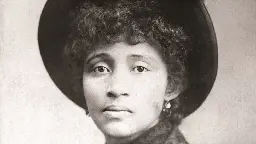Lucy Parsons: Tribute to a heroine of labor
Lucy Parsons: Tribute to a heroine of labor
This article is part of the People’s World 100th Anniversary Series. Lucy Parsons—a radical leader in her own right—is often overshadowed in the annals of labor history by her husband, Albert Parsons, one of the May Day martyrs murdered by the state in 1887 after the demonstrations at Haymark...

cross-posted from: https://lemmygrad.ml/post/3993149
From an excerpt of the article:
This article is part of the People’s World 100th Anniversary Series.
Lucy Parsons—a radical leader in her own right—is often overshadowed in the annals of labor history by her husband, Albert Parsons, one of the May Day martyrs murdered by the state in 1887 after the demonstrations at Haymarket Square the year prior.
When Parsons died in 1942—on International Women’s Day—she was mourned by her comrades in the Communist Party USA, which she had joined three years prior. Elizabeth Gurley Flynn, a prominent leader in the CPUSA, was one of Parsons’ close friends. She wrote the article remembrance below, which appeared in the Daily Worker on March 11, 1942.
Parsons and Flynn had been associates and sisters in the struggle for decades by that point. The two had been involved in 1912 in founding the Syndicalist League and later worked side-by-side in the International Labor Defense, a mass organization created by the CPUSA to defend native and foreign-born workers from persecution.
Parsons was actively involved in the Sacco & Vanzetti Defense Campaign, the Angelo Herndon Defense Campaign, and the fight to save the Scottsboro Nine.
Having earlier been an anarchist like her husband Albert, she gravitated toward the CPUSA in the 1920s and ’30s. She once wrote: “Anarchism has not produced any organized ability in the present generation, only a few little loose struggling groups, scattered over this vast country…. I went to work for the International Labor Defense because I wanted to do a little something to help defend the victims of capitalism who got into trouble, and not always be talking, talking, talking.”
To learn more about the life of Lucy Parsons, read “Lucy Parsons, American revolutionary,” by Norman Markowitz, available on CPUSA.org.